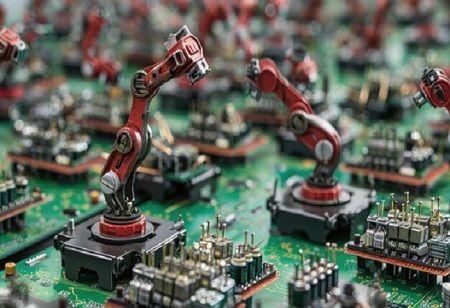
The Japan International Cooperation Agency (JICA) plans to reach a normalization agreement to support India's semiconductor industry, enhancing innovation and skills in the sector. Takeuchi Takuro, Chief Representative of JICA India, in an interview with Business Standard, mentioned they do not know what the project is since it is still early, but the Indian government already identified Gujarat and Assam.
He clarified the project will align with the Indian government policy. JICA signed six agreements in multiple sectors, with a value of 111,181 crore on Thursday. The financing to support the partnership in the semiconductor sector will begin with significant financial support from JICA and could assist Tata in developing semiconductor manufacturing facilities, Takuro noted. This involves a partnership that was announced last year between the Indian Institute of Technology Hyderabad and Renesas Electronics Corporation, a supplier of advanced semiconductor solutions out of Japan.
"Ensuring economic security is critical since the Indian government is optimistic about creating the semiconductor business. Right now, we are actively negotiating with the Indian government on how we can actively engage to contribute because Japan is a country that has most the power in this area and we have a lot of good companies globally in semiconductor business. So, this is our biggest interest now," Takuro noted.
Launched in 2021 with an outlay of 176,000 crore, the India Semiconductor Mission (ISM), aims to establish a robust semiconductor and display ecosystem that promotes India as a global hub for electronics manufacturing and design, and acts as the nodal agency to efficiently and seamlessly implement the semiconductor and display related schemes.
India’s semiconductor consumption market is estimated to reach $52 billion in 2024-25 and will grow with a strong Cagr of 13 percent until 2030. The automotive and industrial electronics sector offers significant opportunities for value addition, according to a report from the India Electronics and Semiconductor Association (IESA).
"The conversation started in 2023, and we are now having conversations about this with all the relevant parties in the Indian government, including Meity (Ministry of Electronics and Information Technology), state governments and some national universities," Takuro added.

